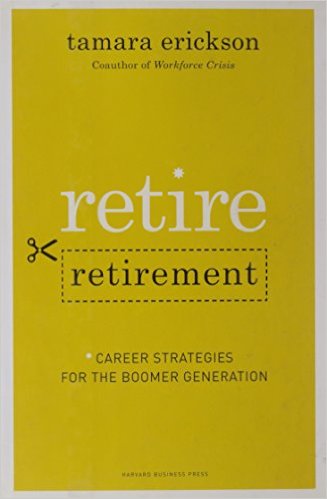 The notion of “retiring retirement” or at least the term Retirement is coming more into vogue these days as more baby boomers reach the traditional ages of the old-fashioned “full-stop” retirement.
The notion of “retiring retirement” or at least the term Retirement is coming more into vogue these days as more baby boomers reach the traditional ages of the old-fashioned “full-stop” retirement.
The current edition of Bloomberg Businessweek magazine has a piece titled “Watch out, Boomers, Here Comes 70,” noting that millions of baby boomers around the world are turning 70 this year.
In the U.S. that means they will come up against the Required Minimum Distribution (RMD) rules on IRAs and 401(k)s, with many forced to pay taxes on those forced withdrawals. Canadian retirees with Registered Retirement Income Funds (RRIFs) are in a similar boat by the end of the year they turn 71. (By the way, I’m preparing a Special Report on RRIFs later this month, and welcome input from professionals with expertise here.)
Of course, the Boomers don’t appear set to leave the workforce quietly. In researching my portion of my own upcoming book (Victory Lap Retirement), I came across a 2008 book by Tamara Erickson titled Retire Retirement, subtitled Career Strategies for the Boomer Generation.
Demography favors Boomers’ third phase of work life
It directly addresses North American baby boomers, noting that demographic trends are in this generation’s favour. A talent shortage of younger workers means these aging boomers “have a nearly guaranteed market” for their skills and energy. The book examines various ways of keeping at least one foot in the workforce.
One line I cited in a talk I gave last week: that the working life span of people is now close to 60 years, or three times what it was in 1900. Whether 60 or 70, it’s quite possible that a “third phase” of life could go on for three or four more decades. This third phase will be quite different than what the Boomers’ parents may have experienced, so planning the future based on the previous generation’s expectations of retirement could also be a mistake, Erickson warns.
I’ve noted the gains in longevity in other blogs at the Hub. Erickson notes that since 2010, health-care technology now available, like cancer treatments:
“could increase lifespan one year every year. By 2030, the average life expectancy in most industrial nations would be one hundred, if all the available technology were applied. Some gerontologists believe many Boomers will have life spans of more than 120 years.”
In short, the Boomers have many options ahead of them, which can include semi-retirement, phased retirement, a career change followed by another stint of full-time work, entrepreneurship and much more. One chapter of Erickson’s book is devoted simply to sorting through these options, which may include renegotiating your employment agreement or changing an employer relationship to a contractual supplier/client arrangement. On one sidebar (on page 111), there’s even the suggestion of two people sharing a single job.
In the end, and as the final chapter summarizes, it’s about reinventing your career and your life, and ultimately doing what you want. But as I noted in a talk last week for Durham Lifelong Learning, I doubt that many boomers will choose three decades of sitting in a muskoka chair and watching daytime television.

